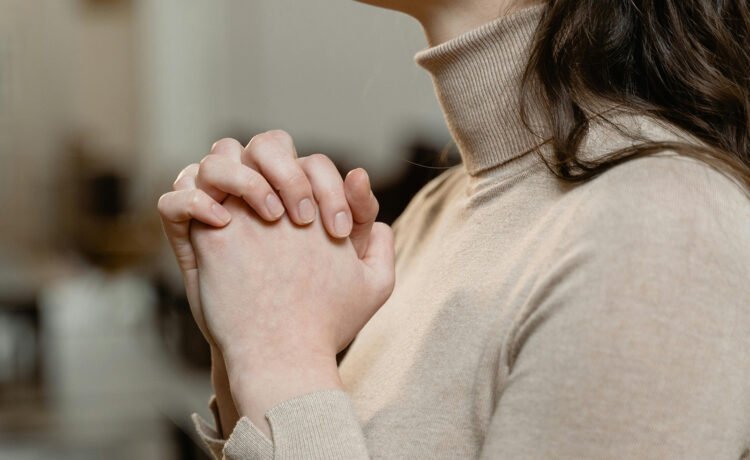VATICAN CITY (RNS) — In the first week of February, the Vatican department that oversees Catholic Church doctrine accepted written testimonies about women in the church whose experience conforms with those called to be deacons — a ministry rooted in serving the poor, leading prayer and administering the sacraments of baptism and matrimony, from which women are currently banned in Catholicism.
Among those groups was Discerning Deacons, a network aimed at informing Catholics on campus and in parishes about the female diaconate, which allowed RNS to read some of the testimonies submitted by the organization and to interview the women they put forward.
The Vatican decided to restore the ancient practice of permanent deacons after the Second Vatican Council in 1967 but reserved the office for men, even allowing older married men to be ordained as deacons. They are still rare; most deacons in the church are men taking the first step toward the priesthood.
But Pope Francis has reignited the conversation, in part by calling for a churchwide listening session about the future of the institution, beginning in 2021, called Synod on Synodality. What Catholics in dioceses around the world consistently wanted to talk about, along with abuse reform and welcoming LGBTQ+ Catholics, was women.
Support for women deacons has been on the rise in the U.S. church, even among ordained leaders. A Pew Research Center study last year found that 64% of American Catholics support the ordination of women as priests. A later survey reported the same trend in Latin America. Despite the growing momentum, the Vatican shut down official consideration of the female diaconate last October, with the head of the Vatican’s Dicastery on the Doctrine of the Faith stating firmly that the pope does not consider the issue to be “mature” and thus requires further study.
But the testimonies submitted to the dicastery during the Vatican’s Second Commission on Women and the Diaconate (Feb. 3-7) showed, advocates of women’s ordination say, how urgent the community’s needs for deacons can be and how women are ready to fill them.
“Deacon Gladys”
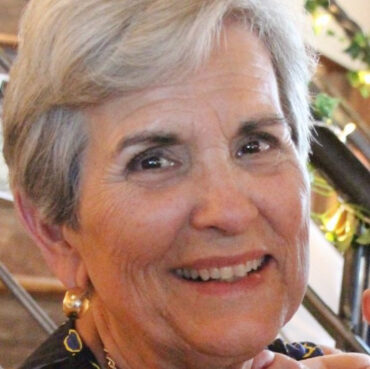
Gladys Whitehouse. (Photo courtesy Discerning Deacons)
For decades, Gladys Whitehouse served the Catholic congregation at St. Francis of Assisi in Raleigh, North Carolina, eventually being named coordinator for evangelization. She helped grieving families prepare their loved ones’ funerals and prepare couples for marriage and parents for their children’s baptisms but could not officiate at any of these rites. Her tireless work led some in the community to refer to her as “Deacon Gladys.”
But she never obtained the right to the title officially. “I work with them, we have a rapport, and then all of a sudden, the door is closed, and I’m not allowed to walk through that other door to minister with them,” Whitehouse, 81, told RNS of those she helped.
She recognizes the title will likely never come her way, she said, but she pursued ordination as a deacon as a gift for the next generation of women. “I want younger women and women who have that same sense of calling to not give up hope.”
Her concern, too, is for the future of the church. The mother of nine, including one disabled child and a transgender son, said she has watched as her children gave up the Catholic faith. “My own children are pulling away from the church because they don’t feel that their voice is being heard or that their own gifts are being respected, and I don’t want that to happen for the church,” she said.
“I want the fullness of everyone’s gifts to be used so that the church will flourish. Because I really do believe that that’s what the Holy Spirit is calling us to at this moment,” she added.
In case of emergency
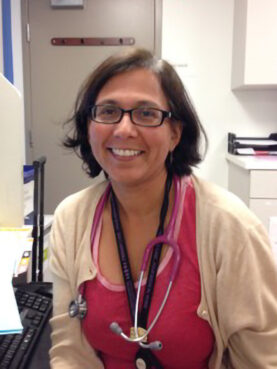
Lydia Tinajero-Deck. (Courtesy photo)
When an unbaptized infant’s life was in danger, pediatrician Lydia Tinajero-Deck, who works in the Jesuit University of San Francisco’s neonatal unit in the Bay Area, baptizes the child, knowing that in emergencies unordained Catholics can administer the sacrament. “It just gave them such peace,” Tinajero-Deck said of parents on these occasions.
She has also laid hands over sick friends and anointed her dying mother. In her testimony, she said a call to the diaconate has tugged at her heart since she turned 14. An active member of the St. Theresa Church in Oakland, she envisions a church that extends “from the community to the altar,” and as a doctor she is often in a place “where it would be great to be able to give that sacramental grace,” she said.
Tinajero-Deck, who said she had learned to anoint and bless from her immigrant mother and grandmother, attempted to share her faith when she became a mother herself. But her children now struggle to embrace a religion that marginalizes women’s call for leadership and ministry, she said. “I honestly feel that if women were brought into the diaconate, … it would be a way to get some of our children to come home.”
Ministry to the invisible
“The darkest day I ever experienced in prison is Mother’s Day,” said Kathryn Getek Soltis, 47, who spiritually accompanies the incarcerated in Philadelphia, where she also heads Villanova University’s Center for Peace and Justice Education. Women deacons, she believes, could offer special solace to mothers separated from their children in prison.
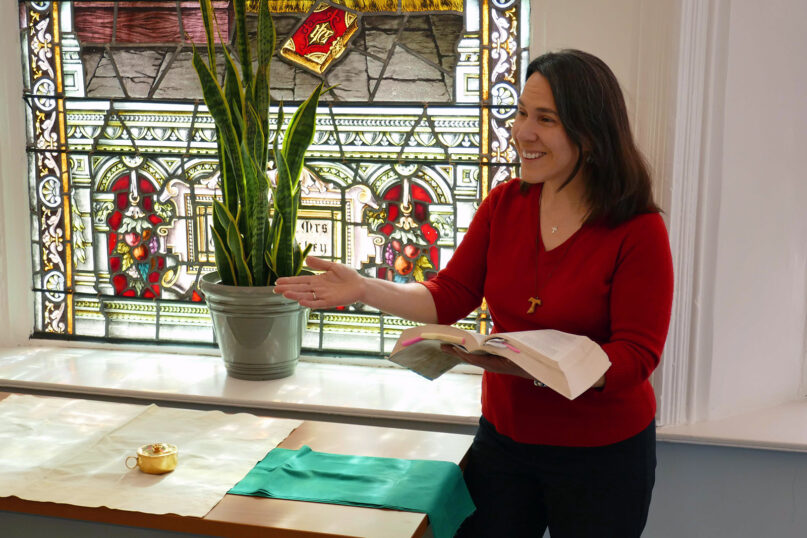
Kathryn Getek Soltis volunteers in prison ministry in Philadelphia. (Courtesy photo)
Her efforts to minister to incarcerated men and women under her care is stymied in large and small ways by her status, she said. The home parishes of men she prepares for confirmation won’t send baptismal records because she’s not a priest and there is no chaplain at her prison. She also struggles to answer prisoners when they ask her who she is. Becoming a deacon wouldn’t merely satisfy her own desire, she said, but would give her visibility to accompany those who are often invisible in American society.
“This lack of recognition for me means a lack of recognition for them, and that’s what really has devastated me,” she said.
Sharing the gospel
When she was six, Kelly Adamson created the ‘We Care Club’ with friends. The group read the Gospel and found ways to help their community. Today, she studies remotely for a doctorate in preaching at the Aquinas Institute of Theology in St. Louis and co-convenes the Catholic Women’s Preaching Circle, a community that encourages each other to fulfill a call to preach.
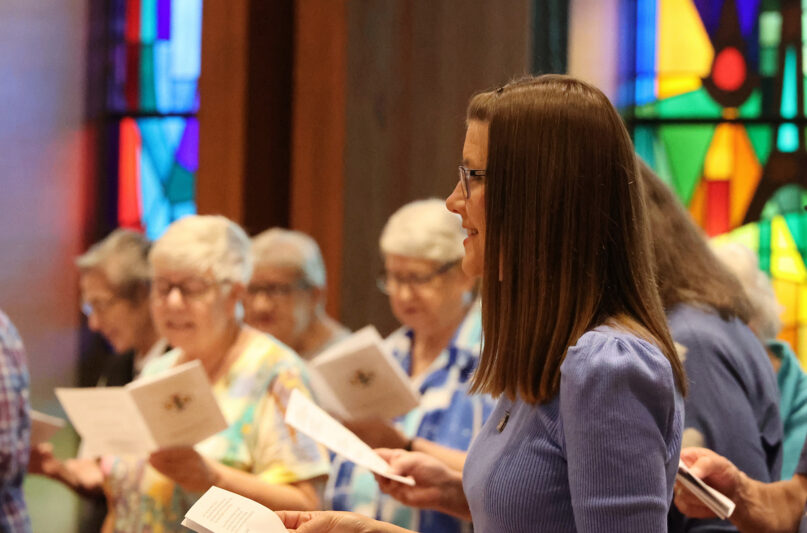
Kelly Adamson, right, during a retreat for the Benedictine Sisters of Erie. (Courtesy photo)
After two decades in campus ministry, Adamson, 47, is currently director of faith formation and spiritual accompaniment at the University of Dayton, a Catholic school in Ohio, where she works with graduate students, preparing them for lay ministry. “I have walked with young women who themselves feel called to ministry and have left the Catholic Church to pursue their call elsewhere,” she said, but others like herself continue in the Catholic faith in the hope that the church will one day recognize their call.
When she hears of abuse, she is unable to legally offer confidential spiritual counseling. “In the Catholic Church what that means, functionally, is that the only people who can guarantee that your story will remain confidential are men, and that really becomes a barrier for some of our young women,” Adamson said.
“I have committed to staying in the Catholic Church,” she said. “Sometimes it’s painful, especially when I feel the Holy Spirit prompting me to ministry and witness that I am not yet able to provide.”
“The kettle is whistling”
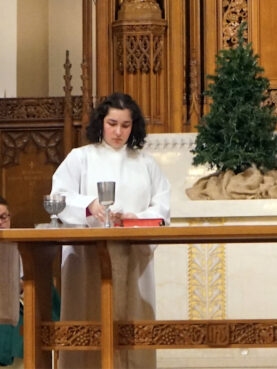
Calista Robledo serves as an acolyte during a Boston College Clough School of Theology and Ministry Thursday Liturgy. (Photo by Emily Mayernik)
When she was 12, Calista Robledo, was asked to serve as Mass captain, coordinating those assisting the priest at the Sunday Vigil Mass. She still remembers going home overjoyed. “As I’ve gotten older, it’s really become this tug on my heart,” she said.
Now 23, Robledo holds out hope that Francis’ efforts to promote dialogue on the role of women in the church will bear fruit. “I sincerely hope and believe, if not within my lifetime, then the next lifetime, that this could happen. I really think about the spirit of the Synod, and just where the Holy Spirit is moving. And I think it’s evident that it’s moving within women to be ordained to the diaconate,” Robledo said.
She encouraged Francis and the Vatican’s doctrine czar, Cardinal Manuel Fernandez, to think about their own vocations and how they were moved to pursue a life in the priesthood.
“The kettle is whistling loudly, beckoning me to tend to it in the midst of my theological education. Yet, I am locked in another room, trying desperately to love where I am, but I know the more I search for, is on the other side,” she wrote in her testimony.

